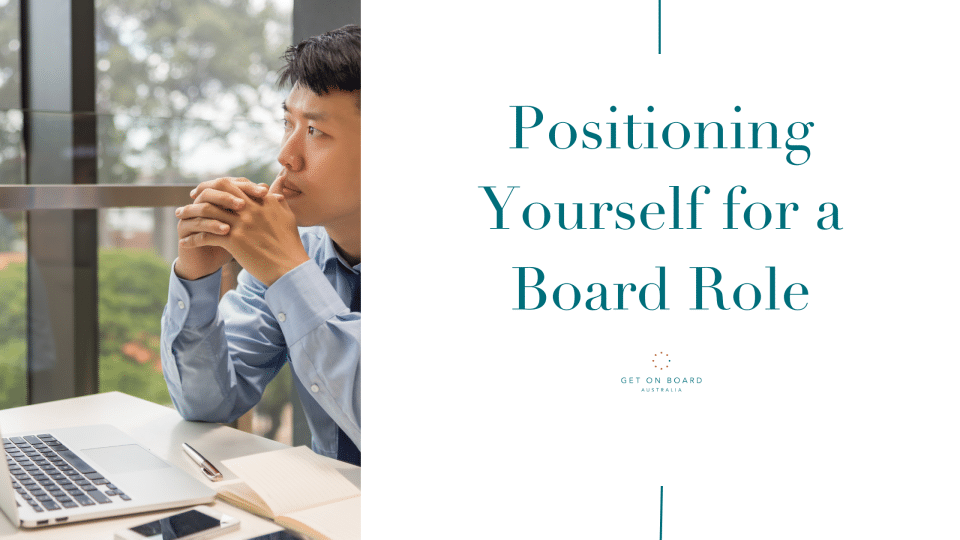Positioning Yourself for a Board Role

Knowing where you want to go – or at least the types of organisations you are interested in – is required before you know how best to position yourself for board roles. You can’t be everything to every board, nor do you want to (lest you end up on the board of an organisation you care nothing for). Once you have a general sense of where you want to end up (here are some articles to help you), you can start researching what they value (i.e. what they are looking for) in their board members.
It’s worth side-stepping here for a moment; I highly recommend realistically approaching your board goal(s). This means tilting the odds of landing a board role in your favour by pursuing board opportunities that complement your existing unique value proposition (more on what and how to define your UVP here). You may have been regularly headhunted in your professional career; the chances of that happening at the beginning of your board career are very low. Low enough to not be depended upon to land your first board role.
Now, back to your research. Start by seeking out board vacancy advertisements for the boards that largely match your criteria. Reviewing the biographies and profiles of board members on these boards will give you further insights. Talking to these (or similar) board members can shed further light on the attributes that make a great board member in the context you’re interested in.
This research will unearth two things for you: the common/universal attributes desired from all board candidates (for example, an understanding of governance, or building effective relationships); and the specific expertise, experience, skills, knowledge, and/or other attributes desired from board candidates at a particular time and on certain boards (for example, expertise in Public Sector or Investment Management expertise). I’m noticing that the best boards want board candidates with a mix of hard and soft skills.
Now, take this information and do this:
(1) For the attributes you have, ensure this information is included in your board resume (and other personal brand environments: e.g. LinkedIn; your personal website). Ensure you have demonstrable examples of that attribute in action; what is the proof that enables you to say “yes, I am someone who builds effective relationships”? Include the name of someone who can appropriately vouch for each of your claims. I recommend keeping this information in a spreadsheet or your ‘base’ board resume.
(2) For the attributes you have identified as necessary but which you have few or no demonstrable examples of, or that need developing, you now have a ready-made development plan for the next 12 or so months. Enlist the help of your manager to acquire the attributes you deem necessary.
This is how you can start actively positioning yourself for the board role(s) you desire. In my next article, I talk about how to use this information to transform your board resume and get on board.
